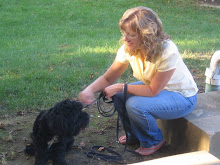Sorry folks, it's been a nutty couple of weeks. I've actually been avoiding my housework, my husband and my kids in favor of a silly little project I've currently got my head wrapped around. I somehow got this bee in my bonnet to create a Geography unit for one of the 8th grade teachers I support based on this amazing book I read last year -- Guns, Germs, and Steel.
Honestly, I'm not even sure he's going to go for it. Regardless, once I start something there's really no turning back for me.
So, if he chooses not to go for it, I've decided to torture you all with my most recent mental occupation -- reconfigured information from the book and its affiliated website. Enjoy!
 Guns, Germs and Steel: The Fates of Human Societies
Guns, Germs and Steel: The Fates of Human Societies- The impact of traversable landmasses, domesticated animals and crops, germs and innovative technologies on the rise and dominance of certain civilizations
- Yali’s questions: How is it that it took tens of thousands of years for my own ancestors to reach New Guinea and it has taken only 200 years for white Europeans to colonize New Guinea? Why is it that you white people developed so much cargo [consumable goods] and brought it to New Guinea, but we black people have so little cargo of our own? Why have different peoples ended up with disparate degrees of power and influence?
- Commonplace things, such as wheat, cattle, and writing and the uneven distribution of these simple elements shaped the course of global history and played a vital part in the epic story of continental competition.
- Domesticated animals and crops were essential for meeting humanity’s basic economic needs: carbohydrates, protein, fat, clothing, traction (for farming) and transport.
- Continents which were easily traversable, such as Europe, encouraged trade among different people and stimulated development ultimately led to beneficial long-term outcomes
- Physical geography of the world and natural impediments such as mountain ranges or bodies of water created isolated civilizations which adversely affected the development and influence of those civilizations
- How these factors (e.g. geographic advantages) determined the rise or fall of civilizations depending on their access to guns, germs and steel. Why some areas prospered and others were left behind, victims of the hand of cards they had been dealt
Jared Diamond’s Theory: Factors Underlying the Broadest Pattern of History

I absolutely LOVE this stuff!! If I could afford it, I'd be back in school in a heartbeat! Can't you see it ... me, the long-term graduate student, plowing through dusty, musty tracts of history and anthropological research seeking out kernels of long-buried knowledge, waiting to be unearthed and brought to light.
I love it!
Later this week ... Cities and Civilizations: A Necessary Alliance






5 comments:
I figured you were up to something good. Don't you just love this stuff? Thanks so much for sharing this book and if your geography unit doesn't fly with the powers that be, I will happily join your class! Fabulous!
Yep. You're weird.
Seriously, very interesting topic. I think the difficulty in this kind of "research" is figuring out how to set aside your prejuidices and leanings to get to the fact of a matter. Good Luck!
Hedy and Lil sis -
Thanks for the check-in; it's great to have visitors. I'm still putzing about in the cyberworld trying to fiddle and rework some of these really big ideas and to make matters worse, hockey season official starts this weekend!
Yikes! The insanity has really begun ...
I loved this book. It's such a great read. I read it when it came out, and I still recommend it to people. He has an earlier book that's great too!
Geri -
Thanks for popping by and saying hi! I really loved this book as well and am very interested in his other book -- Diamond strikes me as being a very intuitive and intelligent man. That's probably why I loved his theories and his book.
Take care and enjoy your holiday season!
Post a Comment